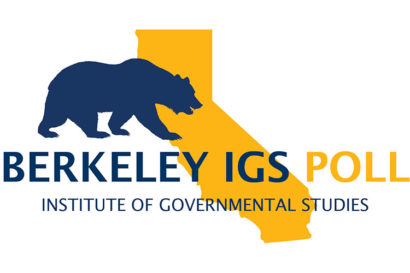New IGS chief: California will model a new approach for the nation
Lisa Garcia Bedolla also sees UC Berkeley's Institute of Governmental Studies as a thought leader in a turbulent time
July 14, 2017
 Eyes have turned to California as a U.S. model for climate change, but the new director of the Institute of Governmental Studies at UC Berkeley foresees the Golden State also taking a bigger leadership position on several of the most critical and politically sensitive issues facing the country.
Eyes have turned to California as a U.S. model for climate change, but the new director of the Institute of Governmental Studies at UC Berkeley foresees the Golden State also taking a bigger leadership position on several of the most critical and politically sensitive issues facing the country.
“California will be a model for a different approach,” says Lisa García Bedolla, a professor in the Graduate School of Education who recently became the first woman and first Latina to lead the IGS.
García Bedolla believes that California’s current political climate — where efforts are underway to ensure that health insurance is available to all, where numerous cities have adopted living-wage ordinances and where regional agencies are investigating measures to mitigate the impacts of rising Bay Area sea levels before it’s too late — make the state a desirable alternative to the stalemates and lack of compassion in play at the federal level.
Institutions matter
“At IGS, we’ll be looking at the places throughout the state where government is working, places that show how institutions really matter,” she says, and those institutions will include California governmental agencies, elected bodies, the state’s universities and IGS itself. “We want to be a go-to place for how to address California’s policy issues.”
The nonpartisan IGS has been part of the campus for nearly a century, promoting interdisciplinary research, education and public service to facilitate better understanding of U.S. and California politics among public officials, policymakers and the media – as well as UC Berkeley students and the public.
Current institute research topics include direct democracy and representative government, immigration and globalization, the politics of race and ethnicity, institutional policy and design, political reform, term limits, campaign finance, redistricting and presidential and gubernatorial politics.
A thought leader
García Bedolla sees IGS expanding its efforts to better inform lawmakers and the public about evidence-based research on issues such as health care, the state’s public higher education compact, immigration, criminal justice, planning around rising sea levels, and even seemingly dull but important subjects like redistricting.
“I’d like IGS to be a thought leader and convener – a hub for public events, public policy forums and the training of graduate and undergraduate students looking for experience doing research and working in government,” she says.
IGS regularly hosts lectures, including an annual review of the presidency and the Barbara Boxer Lecture Series. It also produces ballot measure guides, election commentary, the Berkeley IGS Poll and the online California Journal of Politics and Policy, which contains research and commentary about local, state and national government, electoral politics and public policy.
The institute also is home to the Robert T. Matsui Center for Politics and Public Service, which enables UC Berkeley students to participate in public service through internships, public events and visiting dignitaries.
An innovative researcher
Before becoming the IGS director, García Bedolla chaired UC Berkeley’s Center for Latino Policy Research. She also had already burnished her reputation as an innovative researcher focused on how inequality and marginalization affect the political and educational opportunities of ethnoracial groups, as well as the intersections of sex, gender and race.
García Bedolla is the author of Fluid Borders: Latino Power, Identity, and Politics in Los Angeles (2005), which won the American Political Science Association’s Ralph Bunche Award and a best book award from APSA’s Race, Ethnicity and Politics Section, and Latino Politics (2009), winner of a best book award from APSA’s Latino Caucus. She co-authored Mobilizing Inclusion: Transforming the Electorate Through Get-Out-the-Vote Campaigns (2012), which won APSA’s Ralph Bunche Award and a best book award from the association’s Race, Ethnicity and Politics Section.
Her current research focuses on how to use social science methods to assess the impacts of Integrated Voter Engagement – a strategy that uses ongoing relationship-building to enhance civic engagement, particularly in low-income communities of color. With a grant from the James Irvine Foundation, she and Marisa Abrajano, a professor of political science at UC San Diego, will work with six community organizations across the state to develop best practices for engaging in IVE organizing.
García Bedolla earned her undergraduate degree from UC Berkeley and a Ph.D. in political science from Yale. Before joining the UC Berkeley faculty, she taught at UCLA, UC Irvine and California State University Long Beach.
